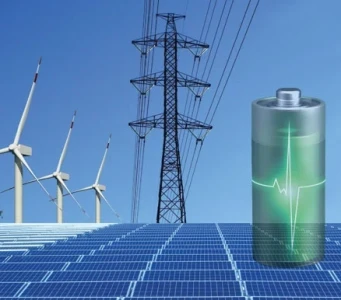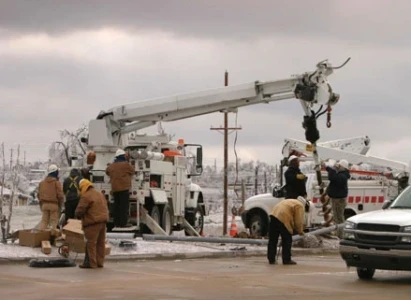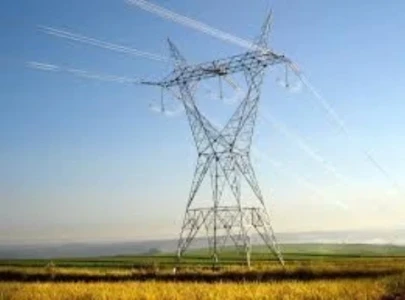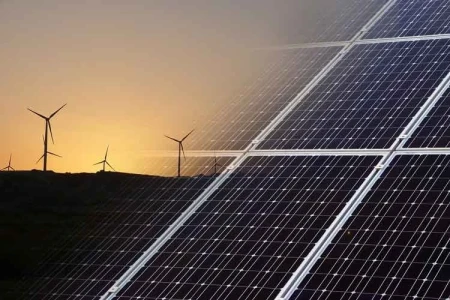FBI Warns of Cyber Risks as Renewable Energy Grows

As the adoption of renewable energy technologies accelerates across the globe, the FBI has issued a stark warning about the increasing cyber risks associated with these advancements. The rise in renewable energy infrastructure, while crucial for achieving climate goals, has also attracted the attention of cybercriminals and adversaries seeking to exploit vulnerabilities in these systems. The FBI’s alert underscores the need for robust cybersecurity measures to protect critical energy infrastructure and ensure the stability of the power grid.
The Growing Threat Landscape
The expansion of renewable energy sources such as solar, wind, and hydro power has led to a significant transformation in the energy sector. These technologies offer a cleaner and more sustainable alternative to fossil fuels, aligning with global efforts to combat climate change. However, this transition also introduces new cybersecurity challenges.
Renewable energy systems are increasingly connected through digital networks, making them vulnerable to cyberattacks. The integration of advanced technologies, including smart grids, remote monitoring, and automated controls, has created potential entry points for cybercriminals. As these systems become more interconnected, the risks associated with cyber threats grow.
Key Cybersecurity Risks Identified by the FBI
The FBI’s warning highlights several key cybersecurity risks associated with the growing adoption of renewable energy technologies:
-
Targeted Attacks on Critical Infrastructure: Renewable energy facilities, including solar farms and wind turbines, are part of the critical infrastructure that powers entire regions. Cybercriminals may target these facilities to disrupt operations, cause physical damage, or gain access to sensitive information. Successful attacks on these systems could have widespread consequences for energy supply and national security.
-
Vulnerabilities in Control Systems: Many renewable energy systems rely on complex control systems and software for operation and monitoring. These systems can be susceptible to vulnerabilities that, if exploited, could lead to unauthorized access or manipulation. Such vulnerabilities could result in operational disruptions or damage to equipment.
-
Supply Chain Risks: The renewable energy sector relies on a global supply chain for components and technology. This interconnected supply chain can introduce risks if malicious actors compromise equipment or software at any point in the supply chain. Ensuring the security of these components is critical for maintaining the overall integrity of renewable energy systems.
-
Data Security Concerns: Renewable energy systems generate and transmit large amounts of data related to performance, maintenance, and operational status. This data can be valuable to cybercriminals seeking to gain insights into system vulnerabilities or operational practices. Protecting data from unauthorized access and breaches is essential for maintaining system security.
Recommendations for Enhancing Cybersecurity
To address the cybersecurity risks associated with renewable energy adoption, the FBI has outlined several recommendations for industry stakeholders:
-
Implement Robust Security Measures: Energy operators should adopt comprehensive cybersecurity measures to protect their systems from cyber threats. This includes deploying firewalls, intrusion detection systems, and encryption technologies to safeguard sensitive data and control systems.
-
Regularly Update and Patch Systems: Keeping software and hardware systems up to date with the latest security patches is crucial for mitigating vulnerabilities. Regular updates help protect against known threats and reduce the risk of exploitation by cybercriminals.
-
Conduct Vulnerability Assessments: Regular vulnerability assessments and penetration testing can help identify potential weaknesses in renewable energy systems. These assessments allow operators to address vulnerabilities before they can be exploited by attackers.
-
Enhance Supply Chain Security: Ensuring the security of the entire supply chain is essential for protecting renewable energy systems. This involves working with suppliers to verify the integrity of components and implementing measures to detect and respond to potential supply chain threats.
-
Promote Cybersecurity Training and Awareness: Educating personnel on cybersecurity best practices and potential threats is crucial for maintaining a secure environment. Training programs should be conducted regularly to keep staff informed about emerging threats and security measures.
The Path Forward
As renewable energy adoption continues to grow, addressing cybersecurity risks will be a critical component of ensuring the reliability and safety of these systems. The FBI’s warning serves as a timely reminder of the need for proactive measures to safeguard critical energy infrastructure.
By implementing robust cybersecurity practices and staying vigilant against emerging threats, the renewable energy sector can better protect itself from cyber risks. Collaborative efforts between government agencies, industry stakeholders, and cybersecurity experts will be essential for fortifying the security of renewable energy systems and supporting the transition to a cleaner, more sustainable energy future.







